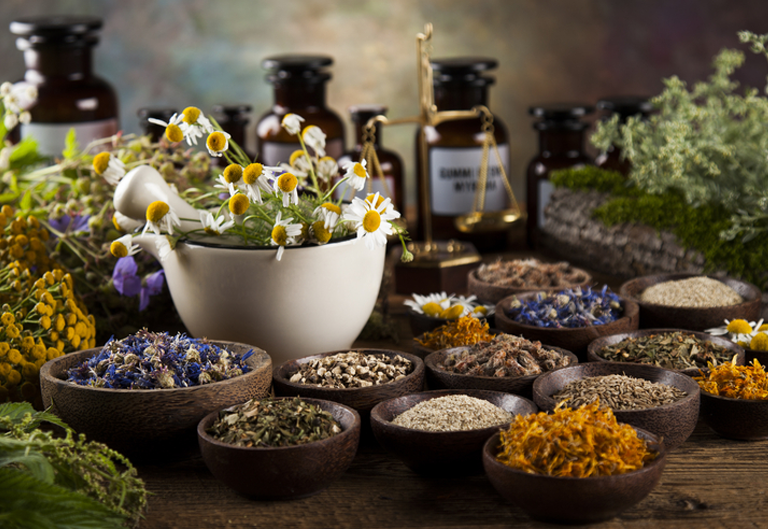Buying Online Herbal Products

Always check that your herbal medicines are safe before buying them, especially online. They may be unlicensed and unregulated and can be contaminated with dangerous substances such as lead, mercury or arsenic.
If you buy herbal supplements, look for a Traditional Herbal Registration mark. This means the product complies with quality standards and instructions for use.
What is an Herbal Product?
Herbs are plants or plant extracts used for their scent, flavour or therapeutic properties. They can be used whole or in a powder or extract form. They are often found in herb teas, flavoured oils or dried in sachets and jars.
Herbal products are usually considered a type of dietary supplement, although some herbal medicines are also sold as a treatment for a specific disease or to improve general health. Herbal medicines are made from a mixture of herbs that are designed to work together to treat a particular condition, and they are usually prescribed by a medical herbalist. Many modern drugs, such as aspirin, were originally extracted from herbal sources.
If herbs are used in a medicinal way, they can be considered herbal medicines and may be subject to the same controls as pharmaceutical drugs. However, herbal medicines are generally not tested in the same rigorous way that pharmaceutical drugs are, and some herbs can be dangerous when taken in large quantities or in combination with other herbs, such as comfrey and ephedra.
Herbalists make tinctures, tea blends, herb baths, herbal body care products and more, using ingredients that they grow or ethically wild-harvest themselves. Many of them are able to run their businesses from home, giving them flexibility and the ability to be with their children. Online marketing is an important tool for this type of business, and a good email program is essential to ensure that customers get regular updates about new products and special offers.
Herbal Medicines
Herbal medicines have a long history of safe use and are used by over 80% of the world’s population. They are a synthesis of therapeutic experiences accumulated over centuries. However, herbal medicines do have potential side effects, just like conventional medications, and should be taken with care. They should be kept out of sight and reach of children. It is also important to let your health practitioner know what herbal remedies you are taking, as they may interfere with prescription medication.
In some countries, herbal medicine is not regulated and may be of poor quality. This is particularly a problem in rural areas with little access to modern medical practices. Herbal products marketed under the Dietary Supplement Health and Education Act (DSHEA) are not required to undergo the same rigorous testing as other medicines and cannot be marketed for the diagnosis, treatment or cure of disease [39].
Some traditional herbal remedies have been found to be toxic when taken in large doses. For example, elderberry is a common cold remedy that can be fatal if eaten raw. Ephedra is another herb that has been known to cause a heart attack or stroke in those with pre-existing conditions. Some herbs, such as the bark of the cinchona tree, contain pyrrolizidine alkaloids that can be lethal in high doses and cause hepatotoxicity in those with liver disease.
Herbal Supplements
Herbal medicine uses natural compounds found in plants’ leaves, roots, seeds or flowers to treat diseases and improve health. The practice of herbal medicine dates back thousands of years and can be used as a complement to doctor-prescribed pharmaceutical medications. For example, a person with heart disease may take the herbal medicine Digitalis, which is derived from the foxglove plant. However, a person should always check with their family doctor before taking herbal medicines because they may interact with other prescription medications and can be dangerous if taken in large quantities.
Because herbs are not subject to the same clinical trials and manufacturing standards as prescription or over-the-counter medication, the claims that many herbal products make are difficult to evaluate. A person should always consult their family doctor before consuming any herbal product, especially if they have a serious medical condition or are pregnant.
A recent study using a DNA barcoding method to test 44 bottles of herbal supplements found that one-third of the products didn’t contain what was advertised on the label. For instance, pills labeled as St. John’s wort, which studies suggest may help treat depression, actually contained nothing of the herb. Instead, the pills were diluted with ingredients such as rice, wheat and soybeans, which are cheaper than the herbs. In some cases, the herbs were replaced altogether with black walnut, which is a potential deadly hazard for people with nut allergies.
Herbal Weight-Loss Products
Herbal products can help support healthy weight loss in conjunction with a balanced diet and exercise. Herbs like ginger, cayenne pepper, ginseng and green coffee bean extract are thought to fight cravings, boost metabolism and burn fat.
Some herbal products are intended to increase energy levels and improve resistance, while others help eliminate toxins. These herb formulations may include adaptogens that normalize the stress response, herbs with anti-anxiety properties, and herbs that support elimination (digestive, diuretic, or laxative). Adaptogenic herbs to consider for weight loss include Siberian, American, and Chinese ginseng; holy basil; schizandra; and ashwagandha. Anti-anxiety herbs include St. John’s wort and licorice. Herbs that are astringent or diuretic include aloe vera, linden, gravel root, senna, and dandelion.
Herbal products that claim to promote weight loss have limited evidence of their efficacy with long-term use and are often contaminated with metals. They are not subject to the same level of scientific rigor as drugs, and their claims should be viewed with skepticism until more research is available. NPs should recommend weight-loss products that have undergone scientific review and are recommended by reputable organizations, such as the National Center for Complementary and Alternative Medicine (NCCAM). Herbal products sold without a prescription or that are presented as purely herbal may contain pharmaceutical substances, such as sibutramine or temazepam, in high doses, and they may be contaminated with toxic metals.




Leave a Reply